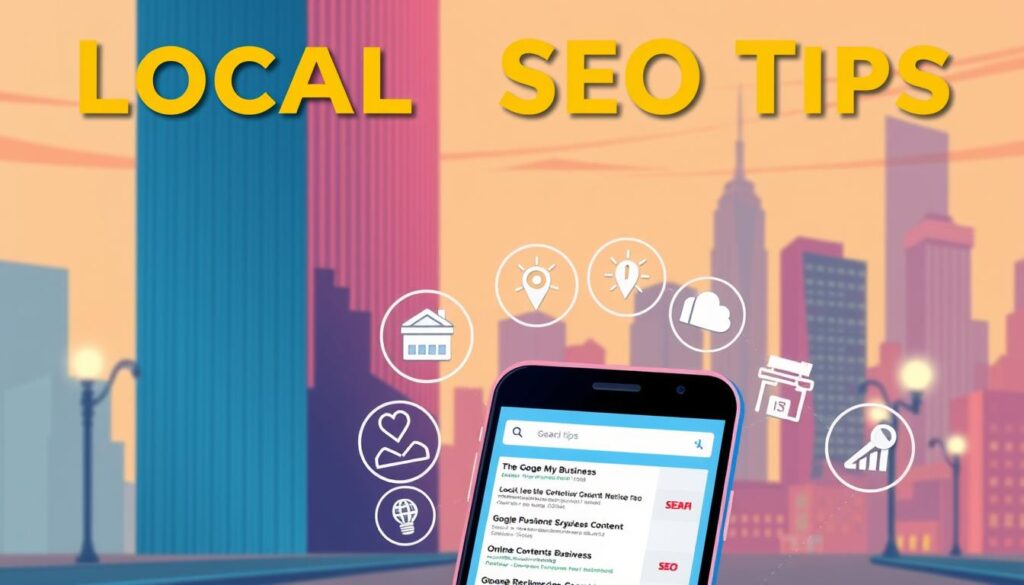In today’s competitive digital landscape, selecting the right SEO agency can make a significant difference in your ecommerce business’s online success. With so many options available, it can be challenging to determine which partner will truly drive sustainable growth for your brand.
Many businesses in the UK face difficulties when evaluating SEO service providers. For instance, some agencies may promise quick fixes or guaranteed rankings, which often lead to disappointment. Others might lack the expertise needed to handle the complexities of large ecommerce sites. A clear strategy is essential for improving traffic and conversions in a sustainable way.
This guide offers actionable tips derived from case studies, reviews, and industry best practices. We will walk you through the process of selecting an SEO agency that aligns with your business goals, ensuring long-term success in the ever-evolving digital marketing landscape.
Key Takeaways
- Avoid agencies that guarantee specific search engine rankings due to the unpredictable nature of SEO.
- Focus on long-term goals rather than quick fixes for sustainable results.
- Ensure the agency maintains transparency and has a proven track record with diverse testimonials.
- Opt for an agency that offers comprehensive SEO services, including onsite, offsite, technical, and content strategies.
- Regular reporting and analysis are crucial for tracking progress and optimizing your SEO strategy.
Understanding the Importance of Ecommerce SEO
In the fast-paced digital world, ecommerce SEO is crucial for your business’s online success. It helps your website rank higher on search engines, making it more visible to potential customers.
When your website appears on the first page of search results, it attracts more visitors. This increased traffic leads to higher conversions and sales. For example, Hanna Sillitoe saw an 8.8X growth in just 12 months by optimising their SEO strategy.
A well-structured site with optimised content and technical elements ensures a smooth user experience. This not only boosts your search engine rankings but also keeps visitors engaged, increasing the chances of making a purchase.
Benefits for Traffic and Conversions
Effective SEO strategies drive free traffic to your website. By targeting the right keywords, you can attract visitors who are actively searching for products like yours. This targeted approach often leads to higher conversion rates compared to other marketing methods.
Sustainable Growth and Brand Visibility
Investing in SEO offers long-term benefits. As your website gains more visibility, your brand becomes more recognizable. This sustained growth helps you stay ahead of competitors in the crowded ecommerce market.
For more insights on selecting the right SEO agency, visit BigCommerce to explore expert recommendations and case studies.
Clarifying Your Business Objectives and Budget
Clarifying your business objectives and budget is the cornerstone of a successful SEO strategy. Before engaging with any SEO agency, it’s essential to have a clear understanding of what you want to achieve and how much you’re willing to invest.
Defining Your SEO Goals
Your SEO goals should align closely with your business objectives. Whether it’s increasing organic traffic, boosting conversion rates, or enhancing customer engagement, having well-defined goals helps guide your strategy. Key metrics such as traffic growth and conversion targets are crucial for measuring progress and ensuring your efforts yield the desired results.
Allocating a Realistic Marketing Budget
Setting a realistic budget is equally important. Consider both your short-term needs and long-term ambitions. For instance, a UK-based retailer allocated a budget that balanced immediate traffic growth with long-term brand visibility, achieving a 30% increase in organic traffic within six months. Transparency with potential agencies about your budget and performance expectations ensures everyone is aligned and working towards the same outcomes.
how to choose an ecommerce seo agency
When selecting an SEO agency, it’s vital to ensure their services align with your business needs. A good agency should offer a comprehensive suite of services, including technical SEO, content creation, and link-building support. These elements are essential for improving your website’s visibility and driving organic traffic.
Identifying Key Service Offerings
A well-rounded SEO strategy should address both immediate and future marketing goals. Look for agencies that provide tailored solutions designed to meet your specific challenges. For instance, a UK-based retailer saw a 30% increase in organic traffic by investing in a strategy that balanced immediate results with long-term growth.
Long-term planning and efficient processes are crucial for successful SEO campaigns. Agencies with a proven track record, like those listed in this expert guide, often deliver measurable results. They understand the importance of time-efficient strategies, allowing you to focus on other aspects of your business while they handle your SEO needs.
Transparency and regular reporting are key. Reputable agencies will provide detailed updates on your campaign’s progress, ensuring you stay informed every step of the way. For more insights, you can explore this comprehensive guide on selecting the right SEO agency.
| Service Offering | Importance | Benefits |
|---|---|---|
| Technical SEO | Ensures website functionality and accessibility | Improves site speed and user experience |
| Content Creation | Drives engagement and relevance | Attracts and retains target audience |
| Link Building | Enhances domain authority | Boosts search engine rankings |
By focusing on these key areas, you can ensure your SEO strategy is both effective and sustainable, driving long-term growth for your ecommerce business.
Evaluating Agency Experience and Industry Expertise
When partnering with a digital marketing agency, it’s crucial to assess their experience and expertise in your industry. A seasoned agency with a proven track record can offer tailored strategies that align with your business goals.
Reviewing Case Studies and Testimonials
Start by examining detailed case studies that highlight the agency’s successes in driving organic growth. Client testimonials provide valuable insights into an agency’s ability to deliver results. For instance, a multi-award-winning agency like Semetrical demonstrates exceptional capability through recognised performance awards and credible case studies.
Assessing the Expertise of Their Team
Investigate the team’s background and digital marketing credentials. Agencies with staff trained in the latest SEO tools and techniques can offer cutting-edge solutions. Their expertise ensures your campaign stays ahead in the competitive digital landscape.
| Criteria | Importance | Benefits |
|---|---|---|
| Industry Experience | Ensures relevant expertise | Strategies tailored to your market |
| Client Testimonials | Validates credibility | Builds trust through proven results |
| Team Expertise | Delivers innovative solutions | Keeps your campaign competitive |
For more insights on selecting the right partner, explore this guide to discover expert recommendations and case studies.
Assessing Service Offerings and Specialisations
A successful ecommerce SEO campaign relies on a well-rounded strategy that balances content creation, technical optimisation, and strategic link-building. Each of these elements plays a crucial role in driving organic traffic and improving search engine rankings.
Content, Technical Work, and Link-Building
High-quality content is the backbone of any SEO campaign. It not only engages your target audience but also signals to search engines that your site is relevant and authoritative. Technical optimisation ensures your website is user-friendly and accessible, which is essential for improving site speed and overall performance. Link-building, on the other hand, enhances your site’s credibility and strengthens your domain authority, leading to better search engine rankings.
Specialised teams within an agency focus on distinct aspects of SEO. For instance, while one team may concentrate on creating compelling content, another may focus on technical adjustments to improve site functionality. This division of labour ensures that every aspect of your campaign is handled by experts, leading to more effective results.
Setting Clear Goals for Success
Setting clear goals is essential for monitoring the progress of your SEO campaign. Whether your objective is to increase organic traffic, boost conversion rates, or enhance customer engagement, having well-defined targets helps guide your strategy. Regular reporting and analysis allow you to track your progress and make necessary adjustments to stay on course.
For example, a UK-based retailer achieved a 40% increase in organic traffic by investing in a comprehensive SEO strategy that balanced content creation, technical optimisation, and link-building. This integrated approach not only improved their search engine rankings but also enhanced their overall online visibility.
| Component | Importance | Benefits |
|---|---|---|
| Content Creation | Engages and informs the target audience | Drives organic traffic and increases conversions |
| Technical Optimisation | Improves website functionality and user experience | Boosts search engine rankings and site speed |
| Link-Building | Enhances domain authority and credibility | Strengthens search engine rankings and trust |
By focusing on these key areas, you can ensure your SEO strategy is both effective and sustainable, driving long-term growth for your ecommerce business.
Considering Client Retention and Campaign Longevity
High client retention rates and long-duration campaigns are strong indicators of a reliable and experienced SEO agency. These factors demonstrate an agency’s ability to deliver consistent service quality and maintain client satisfaction over time.
Longer campaign durations allow for measurable improvements in organic search results. As your site grows, so does its authority, leading to better rankings and increased visibility in your target area. For instance, a UK-based retailer experienced a 30% increase in organic traffic after investing in a long-term SEO strategy that balanced immediate results with sustained growth.
Agencies with high client retention rates often have a track record of building lasting relationships. They adapt their strategies to meet evolving market conditions, ensuring your campaign remains effective. This adaptability is crucial for maintaining relevance and driving continuous improvements in your site’s performance and sales.
Checking Agency Reputation and Thought Leadership
Assessing an agency’s reputation is a critical step in ensuring their credibility and reliability. A reputable agency not only delivers results but also maintains trust through transparency and expertise. In this section, we will explore how to evaluate an agency’s reputation and thought leadership to make an informed decision.
Analysing Reviews and Industry Awards
Start by researching reviews on reputable platforms like The Drum. These reviews provide insights into an agency’s strengths and weaknesses. Industry awards act as third-party validations of an agency’s expertise, showcasing their commitment to excellence. For instance, awards from recognised bodies highlight their ability to deliver exceptional results and stay ahead of industry trends.
Exploring Their Thought Leadership Content
Thought leadership content demonstrates an agency’s command over current SEO trends. By publishing articles, blogs, and engaging on social media, agencies show their understanding of the latest strategies. This content not only educates but also builds trust, indicating their ability to drive successful campaigns. Regularly updated and relevant content is a strong indicator of an agency’s expertise and dedication to staying ahead in the digital landscape.
By focusing on these aspects, you can ensure the agency you choose has the credibility and knowledge needed to enhance your online presence and drive meaningful conversions.
Avoiding Red Flags: Performance Guarantees and Unethical Practices
When searching for the right SEO partner, it’s crucial to steer clear of agencies that make unrealistic promises. Many may guarantee top rankings or overnight success, but such claims are often unrealistic. SEO is a complex process that requires time and effort to yield results.
Recognising Overpromising and Bait-and-Switch Tactics
Be wary of agencies that promise specific search engine rankings or quick fixes. SEO outcomes depend on various factors, including competition and algorithm changes. No one, including Google engineers, fully understands the algorithm, making guarantees unreliable. Reputable agencies focus on sustainable growth rather than unrealistic promises.
Identifying Risks of Outsourcing and Generic Approaches
Outsourcing key functions overseas can lead to inconsistent service quality. Generic approaches might not align with your business’s unique needs. Ensure the agency offers tailored strategies and transparent reporting. Avoid practices like keyword stuffing or hidden content, which can harm your site’s ranking.
| Red Flag | Risk | Solution |
|---|---|---|
| Unrealistic guarantees | Misleading expectations | Ask for data-driven strategies |
| Outsourcing risks | Inconsistent quality | Ensure in-house expertise |
| Unethical practices | Penalty risks | Verify ethical standards |
In conclusion, avoiding red flags requires due diligence. Focus on transparency, ethical practices, and realistic expectations. A reliable agency will prioritize your business’s long-term success over quick, unsustainable results. By being vigilant and informed, you can make the right choice for your SEO needs.
Balancing In-House Knowledge with Agency Expertise
Creating a seamless partnership between your in-house team and an external SEO service provider can significantly enhance your digital marketing efforts. This collaborative approach ensures that your business benefits from both internal insights and the specialised expertise of the agency.
Collaborative Working Strategies
Combining your team’s industry knowledge with the agency’s SEO expertise fosters a more effective campaign. Your in-house team understands your business goals and audience, while the agency brings advanced SEO techniques and tools to the table. This synergy often leads to more tailored and impactful strategies.
| Benefit | Importance | Outcome |
|---|---|---|
| Shared Insights | Enhances strategy development | More personalised campaigns |
| Clear Communication | Ensures alignment | Streamlined processes |
| Regular Check-Ins | Maintains focus | Consistent progress |
By establishing open communication channels and scheduling regular updates, you ensure everyone stays aligned. Sharing internal processes with the agency refines strategies and drives long-term success. For example, a UK retailer saw improved search engine performance by integrating in-house data with agency recommendations.
Leveraging Technical SEO, Content, and Backlink Strategies
A well-rounded SEO strategy for your ecommerce website requires a combination of technical SEO, optimised content, and high-quality backlinks. These elements work together to improve your site’s visibility, drive organic traffic, and boost conversions.
Implementing Technical Set-Up Best Practices
A strong technical foundation is essential for your ecommerce website. Ensure your site is mobile-friendly, as this is now a key ranking factor. Switching to HTTPS security and optimising page load times are also critical steps. Fast-loading pages enhance user experience and improve search engine rankings.
Optimising Content and Building Quality Backlinks
Content optimisation starts with thorough keyword research. Focus on search terms your target audience uses, ensuring they are relevant and have manageable competition. Adjust metadata, craft engaging product descriptions, and use internal linking to guide users and search engines through your site.
Building quality backlinks is another vital aspect. High-authority sites linking to your ecommerce website signal trust to search engines, enhancing your domain authority. Avoid low-quality links that could harm your rankings.
| Component | Importance | Benefits |
|---|---|---|
| Mobile-Friendliness | Enhances user experience on all devices | Improves search engine rankings |
| HTTPS Security | Builds trust with users | Boosts site security and ranking |
| Fast Load Times | Reduces bounce rates | Improves user satisfaction |
| Keyword Research | Targets relevant audience | Drives organic traffic |
| Quality Backlinks | Increases domain authority | Strengthens search engine trust |
By combining these strategies, you create a robust approach that drives sustainable growth for your ecommerce business.
Conclusion
Choosing the right marketing agency is a pivotal decision for your online success. By aligning your business goals with a partner that offers tailored services, you can achieve sustainable growth and improved performance. Evaluating an agency’s experience, ethical practices, and thought leadership ensures you make an informed choice.
Apply the practical tips outlined in this guide to foster a successful collaboration. Regular monitoring of your campaign’s performance will help you stay on track and make necessary adjustments. Remember, a well-optimized website can significantly enhance your conversion rate and overall online visibility.
Take the next step towards elevating your website’s performance. Partner with a marketing agency that prioritises transparency, ethical practices, and your long-term success. With the right strategy, you can drive higher engagement, better rankings, and increased sales. Start your journey to a stronger online presence today!
To choose an e-commerce SEO agency effectively, consider the following organized approach:
1. Understand Services Offered: Ensure the agency provides comprehensive SEO services, including technical SEO, content optimization, and link building. Create a list of necessary services and verify the agency’s offerings against it.
2. Review Case Studies and Testimonials: Request specific case studies relevant to your industry to gauge the agency’s success and relevance. Ensure testimonials are from genuine clients.
3. Assess Experience and Expertise: Look for agencies with several years of experience and a portfolio that includes businesses similar to yours. Check for certifications like Google Analytics or Ads to ensure competence.
4. Evaluate Pricing and Budget: Obtain a detailed breakdown of costs to understand what services are included. Inquire about any potential hidden fees and ensure the pricing aligns with your budget.
5. Avoid Unethical Practices: Verify that the agency uses white-hat SEO techniques. Ask about their strategies and check reviews to ensure they avoid practices like keyword stuffing or buying links.
6. Communication and Reporting: Ensure the agency commits to regular updates and transparent reporting. Clarify how often they will communicate progress and results.
7. Contract Flexibility: Review contract terms to understand commitment lengths and cancellation policies. Ensure flexibility to adapt to your business needs.
8. Online Reputation: Check Google reviews and other platforms for client feedback. A significant number of complaints could indicate issues.
9. Success Metrics: Discuss KPIs with the agency to ensure alignment with your business goals, such as sales or conversion rates.
10. Technical SEO Capabilities: Confirm if the agency offers site audits and technical improvements to enhance performance.
By systematically evaluating these factors, you can make an informed decision that meets your business needs and goals.










